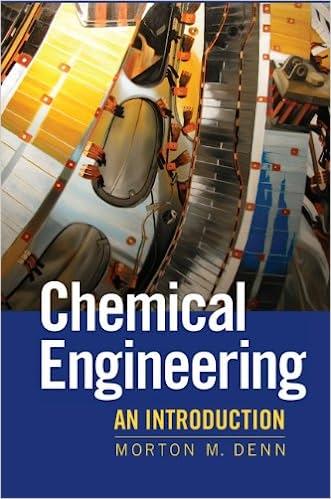Answered step by step
Verified Expert Solution
Question
1 Approved Answer
BACKGROUND American Crystal Sugar Company's ( ACSC ) factory in Moorhead, MN , is a prime example of Energy Conversion system. To support ACSC's goal
BACKGROUND
American Crystal Sugar Company's ACSC factory in Moorhead, MN is a prime example of Energy
Conversion system. To support ACSC's goal of processing beets into sugar the plant produces its own
power by means of steam generation and the Rankine cycle.
The power generation cycle can be summarized as follows. Coal is transported by rail from Midwest
locations, fed through underground scrollelevator combo, and burned in one of the three available large
boilers. The combustion of coal transmits chemical energy into thermal energy with an average heating
value BTUlb but less when coal gets wet due to weather or leakage underground. By having
three boilers in parallel the plant can have different levels of MW output through heat or to complete
repair work on one of the offline units. For normal operating parameters a heat generation of
can be achieved from the boilers. The boilers have an exit pressure of and exit temperature of
During normal operation in the fall, tons of highpressure steam per hour is fed into two GE
turbines; thereby converting thermal energy into mechanical. Coupled with generators, one rated for
MW output and another for output, rotational mechanical energy is converted to electrical
energy.
During typical operation, the first turbine outputs and the second Minimal heat is lost
through the turbines and so they are assumed to be adiabatic. Their exit temperature and pressure are
and psi, respectively. They have separate shafts so that one or both turbines may be used
at a time. During excess production times, the factory will sell energy back to the power grid to the Xcel
Energy. During the time of low production, ie wet coal the factory will supplement their power
production with the power purchased from Xcel Energy. The power produced in the factory "boiler
house" as it is calledpowers lights, doors, and everyday uses in the offices and shop floor. The turbine
exhaust steam is then used throughout the factory for heat transfer in plateframe heat exchangers and
calandria evaporators.
Much of the energy that originally left the turbine is returned to three water pumps and then the cycle is
started again. Due to makeup and high flow rate, only is lost from the turbine outlet to the entrance
of the pumps. Just like the boilers the pumps are run in parallel to allow for repair or extra flow.
Redundancy is very important in a factory that is in operation hours a day for days straight. During
the cycle the water goes through different stages. After the boiler is superheated steam, after the turbine
and before it gets into the feedwater pumps it is assumed saturated liquid.
Byproducts of coal combustion include particulates, NOx, as well as The factory utilizes several
methods for reducing the inevitable carbon footprint. In the main boiler exhaust stacks with minimal
filters with selective catalytic reduction that removes most particulate matter up to as well as
some hydrocarbons, while electrostatic precipitators remove a large majority of the rest, including heavy
metals such as mercury.
The lowpressure steam travels through the factory and uses up its heat capacity completely. By utilizing
redundantmultiple devices per stage, the factory can make just as much power as they require, adjusting
the cycle for better efficiencies. Many closed feedwater heaters are used in the factory as well. Inevitable
and irreversible losses include those due to friction of the steam moving through lines relatively minimal
as they are not long and though the turbine blades. The turbine is also not perfectly adiabatic so it loses
thermal energy.
ASSIGNMENT
Draw a simplified cycle schematic including the boilers, the pumps, the turbines and the
generators, and a the heat exchanger condenser to account for the heat lost through the
applications in the factory and showing the mass flow rates in the lines.
Draw the Ts diagram locating all points described in
Calculate the estimate of efficiency with this model and compare it to the accepted average value
of
Suggest methods of improvement for the efficiency

Step by Step Solution
There are 3 Steps involved in it
Step: 1

Get Instant Access to Expert-Tailored Solutions
See step-by-step solutions with expert insights and AI powered tools for academic success
Step: 2

Step: 3

Ace Your Homework with AI
Get the answers you need in no time with our AI-driven, step-by-step assistance
Get Started


